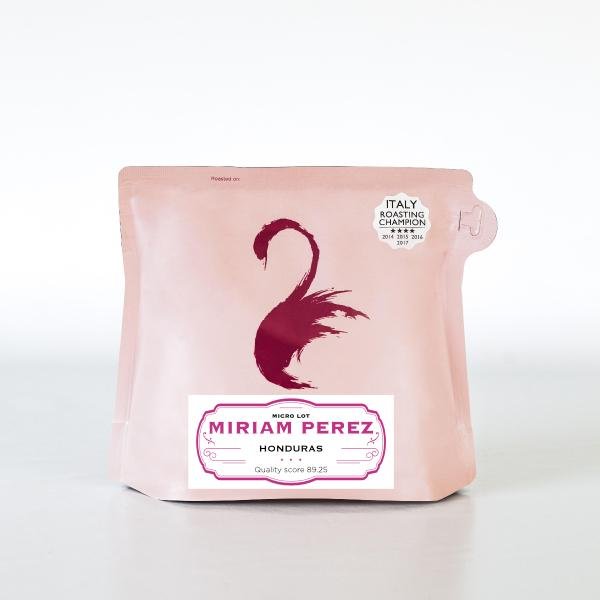






Honduras
250g
Cup Notes
Blueberry / Black cherry / Rum / Raisin / Cocoa suggested for espresso and filter
Quality Score: 84.00
when we roast
We freshly roast to order all coffees on Monday, Wednesday and Friday (excluding national holidays), and ship the same day! Cut-off time is 11:59pm (UTC+1) of the day before the roast day. *We only ship whole beans*
Miriam Elizabeth Perez and her daughter Dania Peñalba own a 6-hectare farm called Finca Clave de Sol. The name of the farm comes from the deep passion Betty has for music, especially when it comes to her violin. She has produced coffee for 19 years and is a third generation farmer. Their farm is a producer member of the COMSA Cooperative.
Over the last few years, COMSA has been experimenting with honey processing as well as natural/dry processed coffees, which have rendered excellent cup results when submitted to quality evaluation. This micro lot processed with a black-honey technique from Miriam Perez is an exceptional example of successful experimentation.
In the honey process the coffee cherry peel is removed right after picking from the coffee tree, but some amount of the fleshy inside, the “mucilage”, remains while the beans are dried over raised beds. The white and yellow honeys have less mucilage left after being mechanically washed. Gold, red, and black honey coffees, on the other hand, have much more mucilage remaining and usually are not washed at all.
Black honey coffees usually take longer to dry because they are dried under shade.